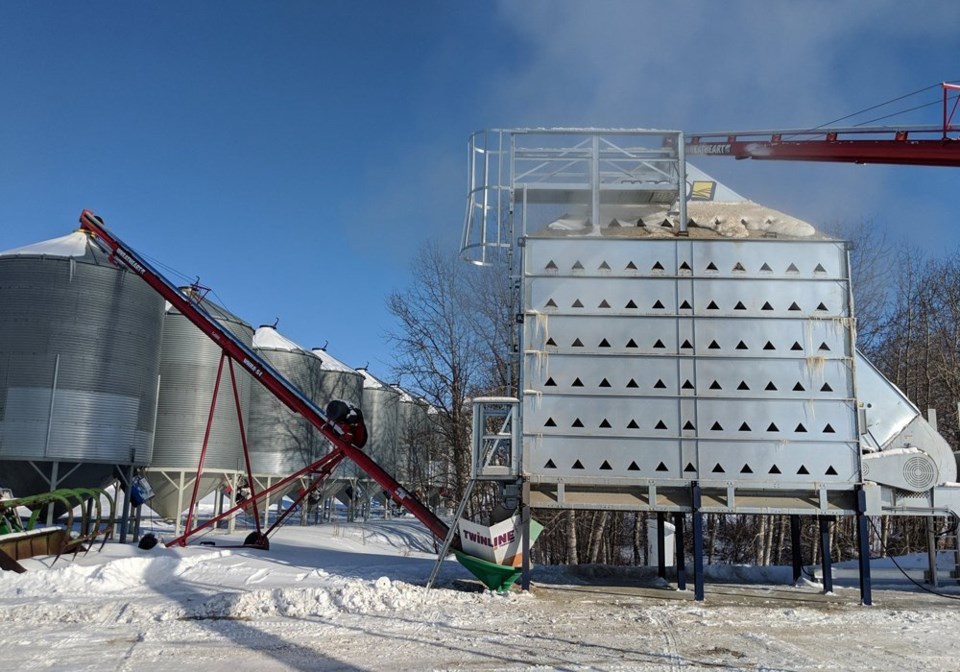Three Prairie agricultural organizations are pushing the Canadian Senate to immediately pass a bill that would exempt farmers from paying carbon taxes on fuels used to dry grain and heat barns.
The Agricultural Producers Association of Saskatchewan (APAS), Manitoba’s Keystone Agricultural Producers (KAP) and the Alberta Federation of Agriculture (AFA) are calling on senators to approve Bill C-234 before they break for summer — by June 30.
Bill C-234 will exempt farmers from paying carbon taxes on propane and natural gas used for drying grain and heating barns, a cost the three organizations say farm and ranch families should not have to absorb.
“We do not have alternatives to propane and natural gas for grain dying and barn heating, and we rely on the weather,” APAS president Ian Boxall said.
“It’s bad enough that Saskatchewan farm families are paying an estimated $40 million in carbon tax to ship grain to port; we should not have to be burdened with an additional $10 million grain drying tax when there are no alternatives.”
Bill C-234 passed through the House of Commons on March 23 after every party supported it. The Senate completed the first reading on March 30 but has been stuck on the second reading.
Boxall told the Moose Jaw Express that the Senate’s agriculture and finance committees are reviewing the bill and conducting further research about whether it’s needed. He stressed the urgency of members passing this bill before they rise.
“Fall is too late because we’ll be into harvest before they sit again,” he said.
Farmers pay enough money in carbon taxes and don’t need to be burdened with extra fees, Boxall continued. While they do receive rebates, those reimbursements don’t offset the $40 million they pay for rail freight, parts, inputs and other purchases.
Furthermore, producers can’t just find some other fuel alternative that the federal government deems more environmentally acceptable and to which it wouldn’t apply carbon taxes.
“If you’re drying grain, you’re already having a tough fall. That means conditions are wet and you’re having to get that grain into shape to put it into long-term storage,” he said.
While not every producer dries grain every fall, some farmers dry small amounts yearly to protect the quality, Boxall continued. Heating and drying are two methods farmers use to mitigate environmental effects on their livelihoods.
“I would say two-thirds or three-quarters of … farmers would have a grain dryer,” he remarked.
Even livestock farmers need to heat their barns to protect their animals. Boxall knows of a chicken producer who pays $2,500 per month on his natural gas bill to heat his barn.
It’s too early to know what the fall weather will be like in Saskatchewan, he added, although some producers would like extra rain while others don’t need any more.
Visit https://apas.ca/ for more information.




